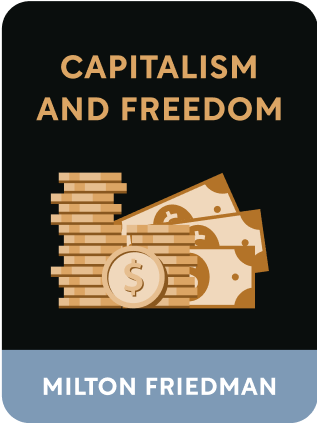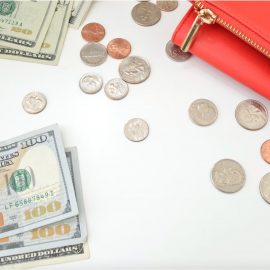

This article is an excerpt from the Shortform book guide to "Capitalism and Freedom" by Milton Friedman. Shortform has the world's best summaries and analyses of books you should be reading.
Like this article? Sign up for a free trial here .
What does Milton Friedman say about poverty? How can capitalism be used to alleviate poverty?
According to Milton Friedman, poverty is bad for the economy and society. However, anti-poverty programs also harm the economy for a few key reasons.
Read more about Milton Friedman, poverty, and how he proposes economies can work to alleviate poverty.
Milton Friedman: Poverty and Anti-Poverty Programs
Progressive taxation is not the only policy by which the government attempts to redistribute income and alleviate poverty. Through a range of programs, including the provision of public housing, the establishment of federal and state minimum wages, and social insurance (most notably Social Security in the United States), public authorities have attempted—nearly always with the best of intentions—to raise the standard of living of the worst-off members of society.
But these anti-poverty programs:
- Injure economic freedom by confiscating property from one segment of the population to give it to another,
- Enable the growth of large and increasingly unaccountable government bureaucracies, and
- Paternalistically presume that the government knows what’s best for the people rather than the people themselves.
Moreover, they usually fail to achieve the goals for which they were created. Instead of alleviating poverty, they exacerbate it and give rise to new social problems—which, in a vicious circle, create a rationale for even more ineffective government action.
Public Housing
Public housing programs are designed to alleviate the shortage of housing and ensure that everyone has a roof over their head. In the United States, federal housing programs destroyed existing housing units in urban areas to make room for new, government-subsidized housing projects.
This was counter-productive. The poor design of this program resulted in a net decrease in the supply of available housing units, because local special interest groups demanded that slums be cleared and that new government housing be set up in its place. Unfortunately, this sort of special-interest lobbying is central to how federal programs of this type work, as they inevitably come to serve the few at everyone else’s expense.
With the public-housing program, this created a situation where more people had to crowd into fewer and fewer housing units, decreasing the standard of living for the occupants of these projects and taking a severe toll on the emotional development of children living there.
By concentrating housing projects in certain geographic areas of cities, federal housing policy created pockets of poverty. This, in turn, destroyed the tax base of these communities, leading to lower-quality schools and fewer economic opportunities to escape neighborhood poverty. You can see that Milton Friedman’s poverty theories depend on capitalism.
If the government wishes to alleviate housing insecurity, it would be better (and more in accordance with economic freedom) to give families direct cash grants to buy or rent homes in the neighborhoods of their choice.
The Minimum Wage
According to Milton Friedman, poverty can’t be helped by minimum wage. Minimum wage laws backfire in a similar way. The case for a minimum wage is that it provides a basic livable income for people who would otherwise not be able to survive on smaller wages.
But just because a state passes a minimum wage law, it does not mean that employers will hire people at that rate. If labor becomes too expensive, employers will simply demand less of it. By reducing employment opportunities at the lower end of the wage scale, minimum wage laws harm the very people they are designed to help. Surely a job that pays less than some arbitrarily defined minimum wage is better than no job at all.
Social Security
Perhaps the most famous redistributive program in the United States is Social Security. Social Security is a government pension system that pays benefits primarily to elderly and disabled citizens. It is financed by payroll taxes collected on people during the course of their working lives. As a compulsory program, no one has the option of not paying into Social Security. According to Milton Friedman, poverty can’t be alleviated by programs like social security.
Essentially, the government mandates that everyone purchase a retirement plan and forcibly takes money from people to compel them to purchase the government plan—not a private alternative. This is the most coercive way that such a system could be designed. Taxpayers are forced to hand over their money to purchase a product that they might very well have elected not to purchase if they had been given free use of their own money.
Even if they were still compelled to purchase a retirement annuity of some sort, many people might have elected a private alternative. But because they are taxed to pay for Social Security, they are deprived of such a choice (and would essentially be paying double if they still chose to purchase a private plan with their after-tax money).
Moreover, the way Social Security is financed represents an unjust redistribution of income from the young to the old. A person retiring today is far more likely to receive more in benefits than they contributed in taxes than a young person just beginning to pay into the system.
This is doubly unfair, as older people are more likely to have accumulated wealth through a lifetime of savings and capital accumulation, whereas young people are less likely to have wealth of their own. Social Security taxes the comparatively poor young to benefit the comparatively well-off old.
In the end, Social Security is premised on a paternalistic assumption that government bureaucrats can plan your future better than you can and that you shouldn’t be trusted to handle your own money.
According to Milton Friedman, poverty won’t be alleviated by government programs, only capitalism.

———End of Preview———
Like what you just read? Read the rest of the world's best book summary and analysis of Milton Friedman's "Capitalism and Freedom" at Shortform .
Here's what you'll find in our full Capitalism and Freedom summary :
- The key principles from Milton Friedman's Nobel Prize-winning book
- Why capitalism functions best when it is freed from government restraints
- How forced redistribution schemes are morally unjust






